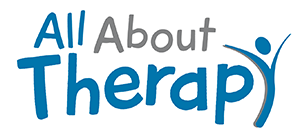Early intervention services are focused on children birth to three years of age. Some examples of early intervention providers are occupational therapists (OTs), physical therapists (PTs) and speech-language therapists. Services are typically offered in the child’s natural environment such as their home, daycare, or preschool and include the family as much as possible. Therapy is geared towards helping each child reach his or her fullest potential, and goals are set at each child’s own pace.
Occupational therapists work on everyday activities of a child…things like: getting dressed, playing with their toys, eating and turning pages of a book. When a child is having a difficult time obtaining a skill or reaching a developmental milestone, the occupational therapist will work with the child on that particular skill as well as teach the parents how they can also facilitate that same skill throughout the week. This method helps to ensure therapy is continued in between sessions with the therapist.
Developmental milestones are skills that children acquire in a sequential fashion. For example, a newborn under three months of age will have tucked-in thumbs and fisted hands; by six months start picking things up; by nine months be raking small objects with their fingers, and so forth. Some young children adopt habits and skills naturally, while others need to be shown how to adjust to new tasks and environments. When a child is not developing these milestones naturally, it may be a sign that they need early intervention services. Occupational therapists treat children with only a mild delay to children who are diagnosed with a life-long disability.
OTs use a holistic approach in identifying a child’s needs and how their treatment plan can meet those individual needs. Early intervention works to help children not only expand their skills, but gain their independence as well. Children that engage in early intervention services benefit by developing many life skills needed to be successful for years to come.
